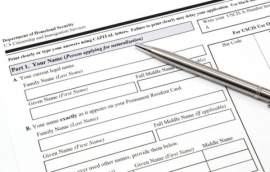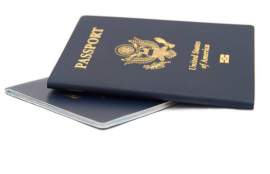
Identification

What to Know About Forms of Identification
In order for an individual to explain or prove his or her identity, age, reside, or other important personal details, some sort of identification document is necessary. The most common way to prove an established identity is by the use of an identity card or license, although other official government documents can be used, such as identity papers, passports, or a driver’s license.
In the United States, the most common forms of identification of legal citizens are include identification in card form (such as Passport Cards, driver’s licenses, and identification cards), passports, social security cards, birth certificates, and others.
A Driver’s License as Identification
While driver’s licenses are technically provided with the intent of allowing an individual to drive, it is common practice in all states and U.S. territories to use a driver’s license as an official form of a identification card. This is because a driver’s license is carried at all times when operating a vehicle and is asked for by law enforcement. Furthermore, a driver’s license provides photo identification, signature, and certain identifying information such as name, date of birth, or physical features.
States also provide identification cards that are almost exactly like a driver’s license, but do not permit the privilege of driving. They do however contain the same personal information as a driver’s license.
These two forms of card identification are accepted and considered valid in other states as well as U.S. territories. Furthermore, many other countries outside of the United States will accept a driver’s license or state identification card as a legitimate identity document.
Both driver’s licenses and identification cards can be obtained through the Department of Motor Vehicles of the respective state. The only exception to this is that Kentucky and Hawaii do not have a state Department of Motor Vehicles, but instead have an agency at the county level.
A driver’s license contains the following identifying information:
Name
Address of primary residence
Physical Appearance (weight, height, hair and eye color)
Date of Birth
Photograph
A Passport as Identification
A passport can be obtained in the United States through the United States Department of State. Passports can be issued to citizens of the U.S. as well as non-citizen nationals. Passports are usually issued in booklet form, but more recently have become available in a limited card form as well.
The primary function of a passport is to allow an American to travel throughout the world, although sometimes a visa may be needed in addition to the passport. However, because passports contain may details about an individual’s identity, they are often used as a form of identification. This often happens with non-US citizens who use their passport from their country of origin, or individuals who do not have a driver’s license.
A passport contains the following identifying information:
Full name
Date and location of birth
Gender
Nationality
Photograph
Other forms of Identification
There are many other forms of identification that can be obtained in the United States. Some of these include the following:
Birth certificate
Social Security Card
Certificate of U.S. Citizenship
Immigration documents
Certificate of Naturalization
Passport card
School ID card
Employee ID card
Credit and debit cards
Proof of insurance
Library card
Membership cards



















